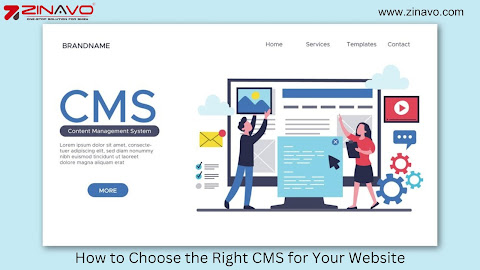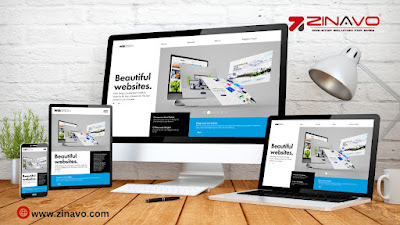How to Choose the Right CMS for Your Website
When choosing a CMS for your website design, consider your specific needs and goals. Evaluate factors like ease of use, scalability, customization options, SEO capabilities, and security features. Popular options like WordPress offer user-friendly interfaces and vast plugin support, while Drupal provides high customization but may require technical expertise. Joomla stands between both, suitable for various purposes.
Prioritize SEO-friendly features like clean URL structures and easy management of meta tags. Ensure the CMS aligns with your site's future growth and offers adequate support and security measures, ensuring a seamless website-building experience.
Understanding Your Needs:
- Define Goals: Determine your website's purpose, whether it's blogging, e-commerce, portfolios, or informational sites.
- Scalability: Consider future growth and the CMS's ability to accommodate increasing content and traffic.
- Budget and Resources: Assess your financial resources and available technical expertise for managing the chosen CMS.
Evaluating CMS Options:
- WordPress: Popular for its user-friendly interface, extensive plugin options, and SEO capabilities. Great for various website types.
- Drupal: Offers high customization, and robust security features, but might require technical expertise.
- Joomla: A middle ground between WordPress and Drupal, suitable for e-commerce and social networking sites.
SEO-Friendly CMS Features:
- URL Structure: Choose a CMS that allows customizable and clean URL structures, aiding SEO.
- Meta Tags and Descriptions: Look for CMSs enabling easy management of meta tags and descriptions for each page or post.
- Site Speed: Opt for CMSs that prioritize performance optimization, as page speed is crucial for SEO.
User Experience and Customization:
- Themes and Templates: Assess the availability and quality of themes or templates that match your website's aesthetic and functional needs.
- Mobile Responsiveness: Ensure the CMS offers responsive design features for seamless mobile user experiences.
- Customization: Evaluate the CMS's flexibility in customizing layouts, fonts, colors, and functionalities.
Security Measures:
- Regular Updates: Check the CMS's update frequency and security patch release policies.
- Community Support: Assess community support for the CMS regarding security-related issues and updates.
- Security Features: Look for CMSs providing robust security measures and plugins to protect against vulnerabilities and threats.
Ease of Use and Support:
- User Interface: Consider the CMS's dashboard and admin interface for ease of use and navigation.
- Support and Documentation: Look for readily available tutorials, forums, and customer support for troubleshooting and assistance.
- Third-Party Integration: Assess the CMS's compatibility with various third-party tools and plugins.
Conclusion:
Selecting the ideal Content Management System (CMS) necessitates a careful assessment of your website design's specific needs. Consider factors like scalability, SEO capabilities, user-friendliness, security measures, and customization options. Whether opting for the widely used WordPress, the robust Drupal, or the versatile Joomla, ensure it aligns with your long-term goals and supports your website's growth. Prioritizing a CMS that offers optimal SEO features, user experience, and flexibility empowers you to create and manage a successful website efficiently, meeting both current requirements and future aspirations with ease.
For more details on Web designing, you can contact the following link.
website: www.zinavo.com
Mail: info@zinavo.com
Phone: 08041531025
Call: +91-7760245945
Start your Website design to improve your business through online presence.




Comments
Post a Comment